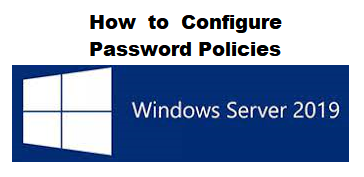| AWS |
Microsoft Azure |
| Amazon Web Services (AWS) in 2006 began offering IT infrastructure services to businesses in the form of web services. |
Windows Azure became commercially available in the early year of 2010 as more services were added. |
| AWS feature rich and user friendly dashboard a provide, along extensive with documentation. |
Azure account information keeps in one place, although its documentation system is less search friendly and intuitive. |
| More open to open source community. |
Less open to open source community. |
| Few AWS major services are EC2,Lambda,CloudWatch,EKS,ECS etc.. |
Few Azure major services are Azure Virtual Machine, Azure monitor,AKS etc. |
| Whenever instance got stopped Public IP address is changed.
|
Whenever instance got stopped Public IP address remains same & unchanged. |
| AWS offers Virtual private cloud so that user can create isolated networks within the cloud Known as VPC. |
Azure offers Virtual network through which we can created isolate networks, route tables, subnets, private IP address range as same as in AWS. |
| AWS has configurations and more features it offers a lot of flexibility, power and customization. |
Azure will be easy to use if we are using windows platform and it’s easy to integrate on premises windows servers and cloud instances to create a hybrid cloud environment. |
| AWS Storage has services like AWS S3, EBS, and Glacier. |
Azure Storage Services offers Disk Storage, Blob Storage, and Standard Archive. |
| AWS uses a relational database as a service by using RDS, for NoSQL it uses Dynamo DB and caching it uses Elastic Cache. |
Azure uses MySQL, SQL database, and PostgreSQL for the relational database, it uses Redis Cache for caching purpose and Cosmos DB for NoSQL solutions . |
| The AWS Free Tier gives you free access to 85 different AWS cloud products and services across compute, storage, database, IoT, artificial intelligence, and many other categories. |
When you create an Azure account, you get a $200 credit to use within the first 30 days of registration. In addition, you get free access to 54 Azure cloud products and storage, database, services across compute, security, artificial intelligence and other categories. |
| AWS offers four main pricing models:
i) On demand: The services you need at any given time. Services are billed by the hour or second of actual use.This provides a lot of flexibility.
ii) Savings plans: A flexible pricing model that lets you use Amazon EC2, AWS Lambda, and AWS Fargate at a low cost, with a commitment to a certain level of spend on all services.
iii) Reserved instances: Provides a discount of up to 72%, in exchange for a commitment to use a specific compute instance for a term of one or three years. Amazon lets you pay some or all of the amount upfront, and this affects the level of discount you receive.
iv) Spot Instances: A pricing mechanism that lets you buy Amazon’s spare compute capacity at a discount of up to 90% off the on-demand rate. There is no upfront commitment.
|
AZURE offers four main pricing models:
i)Pay as you go: Like Amazon on-demand, services are billed on actual usage, with no long-term commitments.
ii)Azure Hybrid Benefit: This is a bring your own license (BYOL) model, in which you can leverage existing licenses for Microsoft products, such as Windows Server and Microsoft SQL Server, to get discounts for Azure services that include the same software.
iii) Reserved VMs: Azure offers Reserved Virtual Machine Instances (RVMIs), which provide a discount of up to 72% in exchange for a long term commitment of 1 or 3 years.
iv) Spot VMs: lets you purchase spare compute capacity on Azure at a discount of up to 90% compared to pay-as-you-go rates. Azure spot VM capabilities are less advanced than Amazon and fewer options for running spot instances in combination pay as you go or reserved instances.
|







0 Comments